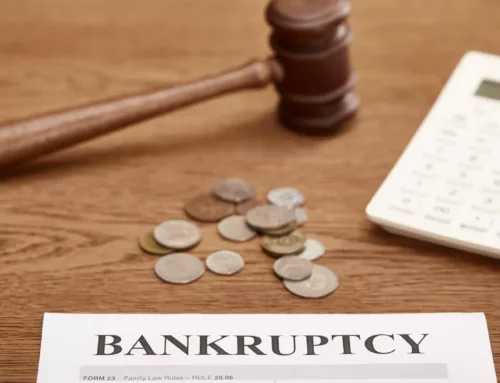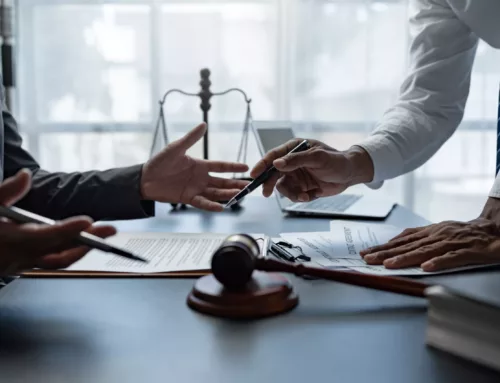Are you facing a pile of seemingly insurmountable credit card bills, loans, and lines of credit? Overwhelming debt may cause you extreme stress, pressure, and undue hardship. When a person or a company is struggling with debt, filing for bankruptcy can be the last resort to solve financial problems, reorganize debts, restructure finances, and live a debt-free life.
Bankruptcy can allow you a fresh start, but it will stay on your credit report for several years. If you are considering bankruptcy, one of the most important decisions you have to make is to choose which type of bankruptcy is right for you. These bankruptcy chapters correspond to portions of the United States bankruptcy code that detail how the debt will be handled during the bankruptcy process. Getting legal aid from a competent Royal Oak bankruptcy attorney is recommended before you file bankruptcy.
Bankruptcy is a legal proceeding that may have long-term financial and credit consequences. It is important to understand how bankruptcy laws and the different bankruptcy chapters work before declaring bankruptcy.
The article covers the following:
- How to Choose the Right Bankruptcy Chapter?
- How Do I Qualify for the Bankruptcy Chapter?
- What are the Debtor’s Rights in Bankruptcy?
- What are the Creditor’s Rights in Bankruptcy?
- What are the Creditors’ Rights for Secured and Unsecured Claims?
- What are the Consequences of Bankruptcy Filing?
How to Choose the Right Bankruptcy Chapter?
Before you file for bankruptcy, it is important to know how to choose the best bankruptcy chapter depending on your financial situation. There are two common types of bankruptcy chapters – Chapter 7 and Chapter 13.
Chapter 7 Bankruptcy
This type of bankruptcy allows the liquidation of assets to pay your creditors. However, it does not automatically mean that you will give up all the assets that you have acquired. There are certain assets that you can protect from being liquidated using bankruptcy exemptions of the state, while some assets that are classified under the non-exempt property cannot be protected. Under this chapter, your court-appointed United States trustee will be responsible for selling your non-exempt properties. The proceeds will be distributed to your creditors based on the payment plan.
Chapter 13 Bankruptcy
In Chapter 13, you must pay back some or the full amount of what you owe to creditors under a debt repayment plan. The most important factor to consider in filing Chapter 13 is sufficient and regular monthly income to wipe out your debts. This chapter allows you to restructure and reorganize your debts through a repayment plan that will last for three to five years. This can be a good option for you if you have non-exempt assets and properties that you want to keep.
How Do I Qualify for the Bankruptcy Chapter?
Before choosing the bankruptcy chapter to be filed, you must undergo the “bankruptcy means test”. The key factor that determines your qualification is your monthly income. Your salary must be less than the median income in your state or you must pass the bankruptcy means test to evaluate whether you may fairly be expected to pay off debts through your disposable income.
In Chapter 7 bankruptcy, if the income of your family falls below the median income of Michigan, it means that you pass the means test. On the other hand, if the income of your family exceeds the median income, you may still be qualified to pass the means test after you deduct a list of the allowable living expenses.
On the other hand, Chapter 13 bankruptcy (wage earner bankruptcy) is considered an expensive option since it requires a debtor to have a stable monthly income. To qualify, you need to pay all non-dischargeable debts and the value of your non-exempt property using all your disposable income.
Whether you intend to file Chapter 7 or Chapter 13 bankruptcy, it is a good idea to seek legal advice from a credible Royal Oak bankruptcy attorney. He or she will assist you with your bankruptcy petition and help ensure that you successfully go through your bankruptcy case.
What are the Debtor’s Rights in Bankruptcy?
When you declare bankruptcy, the court will issue an “automatic stay”. It is a provision in United States bankruptcy law that temporarily prevents creditors, collection agencies, and government entities from pursuing debtors for money that they owe.
A borrower may file a case against a lender who continues to contact him or her or attempts to sue after an automatic stay is in place. It lasts as long as the bankruptcy proceeding continues, and it ceases if the case is dismissed or discharged.
What are the Creditor’s Rights in Bankruptcy?
When a debtor fails to make payments, the creditor has the right to seek compensation through phone calls and by sending notices. If the debtor doesn’t respond, they can send the owed amount to collections. One of the important roles of a bankruptcy trustee in administering a bankruptcy case is to make sure that creditors’ claims are paid back to the extent possible before discharging a debtor’s debts. If the debtor files for bankruptcy, the creditors are entitled to:
- Share in any distribution from the bankruptcy estate according to the priority of the claim (most unsecured, non-wage claims come low in the priority scheme, and may receive little or nothing)
- Be heard by the bankruptcy court in matters concerning the liquidation of the debtor’s nonexempt assets in Chapter 7 and the debtor’s repayment plan in Chapter 13
- Challenge a debtor’s right to a bankruptcy discharge
What are the Creditors’ Rights for Secured and Unsecured Claims?
In most bankruptcy cases, secured creditors have rights based on a mortgage, a deed of trust, a judgment lien, or a security agreement on personal property. Creditors with liens on the property are entitled to receive a value that is equal to the amount of debt or the collateral.
Unsecured creditors (those who hold medical bills or credit card debt) do not have the same rights because of the priority level. Many unsecured creditors will not be paid in Chapter 7, and they may not be entitled to be paid in Chapter 13. Payment depends on how many priority and secured debts the bankruptcy filer has incurred.
What are the Consequences of Bankruptcy Filing?
Bankruptcy comes with both advantages and disadvantages. As a bankrupt individual, you worry about the consequences that you might face once you file for bankruptcy. One of the common concerns is the after-effect of bankruptcy on your credit score.
Once you have filed for bankruptcy, it will stay on your credit history for a maximum period of 10 years and it can damage your credit score. However, the effect of bankruptcy in your credit report will gradually fade with time as you think of ways on how to rebuild and improve your credit score after bankruptcy. Rebuilding credit requires a lot of effort, hard work, and effective debt management skills.
What is the Role of a Bankruptcy Lawyer?
Filing bankruptcy is a complex and progressive process that will help you solve your debt problems one step at a time. Bankruptcy is a complicated court procedure and a single mistake may lead to the loss of your home, car, or other major assets. It is important to know and understand the whole bankruptcy process to avoid errors. Whatever the case may be, consult a bankruptcy attorney and be knowledgeable about your rights and debt-relief options.
For legal help in your bankruptcy filing, do not hesitate to schedule a consultation with our experienced Royal Oak bankruptcy attorneys at Hammerschmidt Stickradt & Associates. Our bankruptcy law firm will help you choose the best bankruptcy chapter, determine the perfect time to file the paperwork, save the assets that you want to keep, know the rights of both debtors and creditors, and help you achieve financial freedom. We will help you get the best possible result from your bankruptcy filing in Royal Oak.




